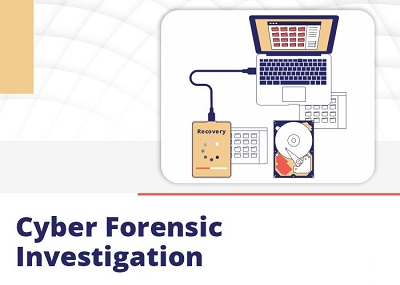Without doubt, we face them in banking, communication, health and other sectors in our day to day activities. As much as these developments have enhanced the ease in our daily lives, they bring with them exposure to cyber threats. Cyber security checks assist in the security of these intangible resources by offering safeguard against cyber criminals. In light of the increased threat in cyberspace, safeguarding data has become as valuable an asset as safeguarding physical property.
Different Types of Cyber Attacks
Understanding the types of cyber-attacks is a key aspect of cyber security. Here are some prominent cyber threats:
Phishing: The purpose of fake messages is to lure people into providing some details concerning themselves.
Malware: Viruses that enter computers and as a result corrupt or delete information.
Ransomware Attacks: Holds users’ data hostage for a ransom which can be paid only to the attacker.
Spyware: Hides and collects data on a device and forwards this information to other organizations.
Zero-Day Exploits: Aggressive approaches that look for unknown things in the software.
When unaddressed, these threats can lead to loss and damage on the financial aspect and company reputation respectively. Being aware of these risks helps an organization to develop a good defense mechanism.
Key Elements of Cyber Security
Cyber security embodies certain principles and practices. Three key elements form the foundation of any robust cyber security framework:
Confidentiality: Limiting access to data to only those people that have been granted permission to access the data.
Integrity: Safeguarding the data and making it reliable and unambiguous.
Availability: Making sure that timely visibility of data and resources is also secure.
These principles interactively serve to foster a secure IT landscape which will guarantee the protection of information as well as its accuracy and accessibility.
Easy Tips to Enhance Internet Security for Home and Workplace
While organizations often have dedicated teams, individuals can take several simple steps to improve their own security:
Create Unique Passwords: The usage of good, different passwords will help minimize the risk of somebody getting into the system.
Use Multi-Factor Authentication (MFA): Enhances the level of confirmation of your accounts.
Install Security Software: First basic barrier is offered by antivirus and firewall software tools.
Be Mindful of Links and Downloads: Do not click on obscure links and be very careful when downloading something from the internet.
Backup Data Regularly: If there is an attack, then damage control is kept to the barest minimum due to files and data being backed up.
These steps when put in practice improve security of data in either an individual or organizational setting preventing such threats from occurring.
The Growing Demand for Cyber Security Professionals
Amidst rising trends in these threats, the market for specialists in this area remains strong. Currently, many enterprises and authorities consider positions dedicated to cyber security as important to protect their networks. The solutions to these demands can be gained from an online certified course in cyber security.
A standard cyber security course is between 1-6 months and comprises live online classes with activities and simulations. The content is simplified for understanding but at the same time covers almost all the aspects needed to be taught in a classroom. Skill based on site workshops are also provided for practical session exposure to real world scenarios.
Cyber Security Courses: A Road Map to a Lucrative Occupation
Cyber security training introduces knowledge about risks and teaches how to protect students from them. Sometimes programs teach social networking, security principles, ethics, hackers, forensics, etc. Through the practical, students acquire valuable skills that make them employable in today’s job market, as they graduate with professional skills.
Conclusion
This is the realm of cyberspace, and security has emerged as one of the most important personal security features. Whether it is as small as maintaining good hygiene when using a computer to as big as learning proper training, the battle is won by everyone present. Therefore, cyber security is the noble profession of the future, as it will help to make the global environment of the Internet more secure for everyone as the threats are developing rapidly.





Comments